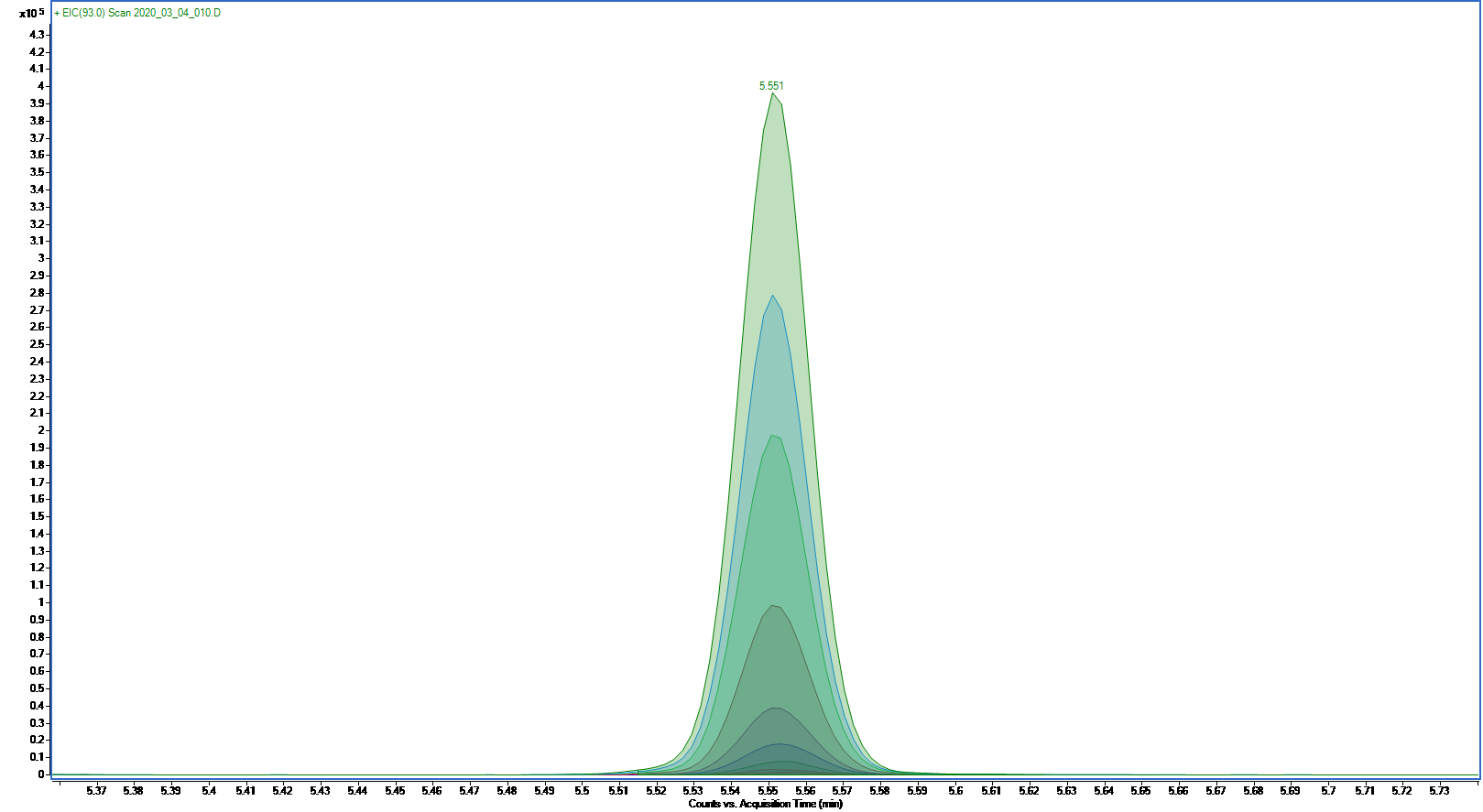Complete Workflow for Comprehensive Cannabis Terpenes Analysis
Workflow for the Analysis of Terpenes in Hemp and Cannabis

Introduction: Analysis of Terpenes in Cannabis and Hemp
Terpenes are a class of compounds responsible for the aroma or fragrance of the cannabis flower. The search of cannabis customers for a desired aroma or effect makes it important to determine the terpene profile of a cannabis strain. Terpenes have been proposed to enhance the therapeutic properties of cannabinoids through, what is referred to as the entourage effect. The most abundant terpene in cannabis is myrcene. Myrcene is known for its earthy, musky scent and is found in many cannabis varieties. Terpenes quantification can be accomplished using techniques such as gas chromatography (GC) or mass spectrometry.
In the absence of current universal regulatory requirements for terpene testing, this application note is to serve as a guide for customers developing their own analysis for a desired terpene. Herein, we propose a fast and efficient way to determine the terpene profile of hemp or cannabis flowers using a simple sample preparation technique based on liquid extraction. This approach reduces sample preparation time, solvent consumption, and the time to obtain analytical results. This workflow analyzes 31 cannabis-related terpenes by GC/MS in full scan mode and the uses certified reference standards. Tridecane is used as the internal standard as it is not found in the samples and elutes in the middle of the chromatogram. The full scan spectra of the reference standard mix, calibration standards, and samples were searched and matched against the NIST GC/MS spectra library. The method can be easily modified and adapted to include additional terpenes of interest for their identification and quantitation with the same approach.
Chemical Structures of Terpene Analytes

Sample Preparation and Internal Standard Solution Preparation
Instructions for Hemp Flower Extract Preparation
Instructions for the Preparation of Internal Standard Solutions
Instructions for the Preparation of Working Standard Solutions
Calibration Curve Standard Dilution Scheme
GC-MS Instrument Conditions
Mass Spectrometer Conditions
TIC Chromatogram of Terpenes Standards Mix

Detection and Calibration
GC-MS Detection and Calibration of α-Pinene

Overlaid EIC of nine α-Pinene standards

Three injections of 50 mg/mL α-Pinene standard

Calibration curve for α-Pinene standards from 0.75 µg/ml to 100 µg/ml
GC-MS Detection and Calibration of Camphene

Overlaid EIC of nine Camphene standards

Three injections of 50 mg/mL Camphene standard

Calibration curve for α-Terpinene standards from 0.75 µg/ml to 100 µg/ml
GC-MS Detection and Calibration of α-Terpinene

Overlaid EIC of nine α-Terpinene standards

Three injections of 50 mg/mL α-Terpinene standard

Calibration curve for α-Terpinene standards from 0.75 µg/ml to 100 µg/ml
Tridecane ISTD Response Reproducibility

Overlaid EIC chromatograms of 9 Tridecane ISTD Injections from calibration curve
TIC of Extracted Hemp Sample

Chromatogram of the Extracted Compound from Hemp Sample

Targeted MS Library Created from Cannabis Terpene CRM Mix A & B

MS Spectra of Peak at 13.082 min α-Humulene

Tabulated Results for 31 Cannabis Terpenes and IS |
|---|
Conclusion
A fast, efficient, and highly reproducible analytical method was developed for the quantitative analysis of 31 cannabis-related terpenes using GC-MS. Supelco® chromatography consumables, solvents, supplies, analytical reagents, and certified reference standards in combination with GC-MS provide an efficient way to analyze cannabis products for terpenes to meet the current cannabis product labeling requirements. Low quantitation levels of 0.75 µg/g (750ppb) are easily achieved. Also obtaining all the consumables and reagents from one supplier ensures that time is well spent in analyzing and running samples rather than finding multiple sources for the required analytical supplies. The use of a 20m x 0.18mm x 0.18 μM GC column provides the greatest chromatographic resolution of terpene analytes and facilitates the analysis of additional analytes in the future, if necessary.
Para seguir leyendo, inicie sesión o cree una cuenta.
¿No tiene una cuenta?